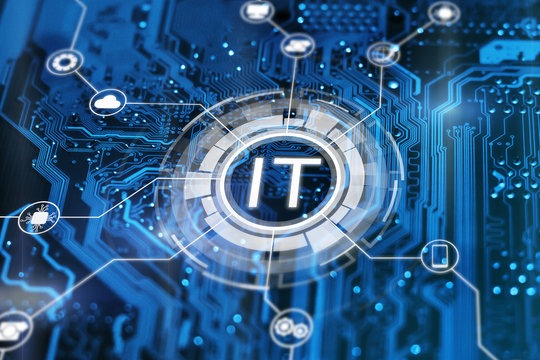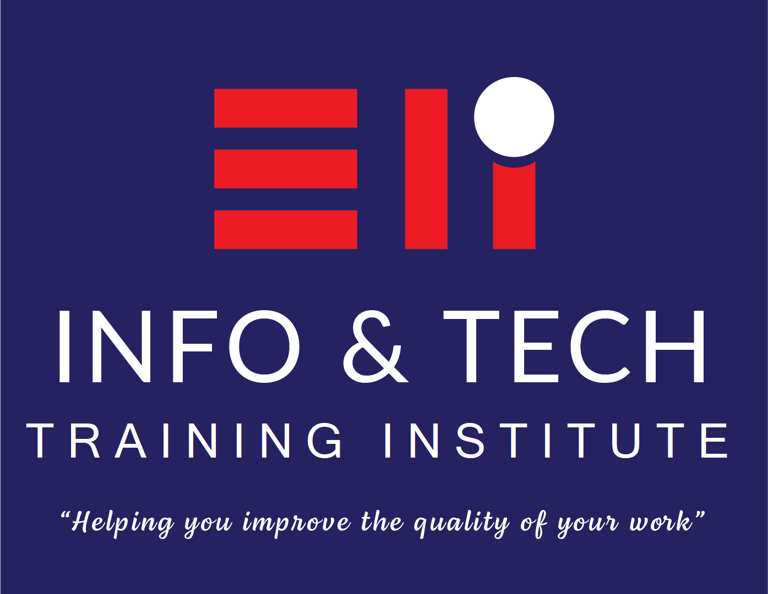Add your promotional text...



Information & Technology

The Computer Networks Administration & Management certificate program at Eli Information & Technology likely provides participants with the foundational knowledge and skills needed to manage and maintain computer networks.
Here's a likely breakdown of what the program might cover:
Core Topics:
Networking Fundamentals: Understanding network topologies, protocols (TCP/IP, OSI model), network devices (routers, switches, firewalls), and addressing schemes (IP addressing, subnetting).
Network Operating Systems: Working with common operating systems for servers and network devices, including Linux, Windows Server, and Cisco IOS.
Network Security: Implementing security measures such as firewalls, intrusion detection systems, VPNs, and access control lists.
Network Troubleshooting: Learning how to identify, diagnose, and resolve network problems.
Network Monitoring and Management: Using tools to monitor network performance, identify issues, and manage network resources.
Wireless Networking: Understanding wireless technologies (Wi-Fi, Bluetooth), configuring wireless networks, and troubleshooting wireless connections.
Practical Skills:
Hands-on Lab Experience: The program likely includes practical labs where students can configure and manage network devices, implement network security measures, and troubleshoot network issues.
Industry-Standard Certifications: The program might offer the opportunity to prepare for and take industry-recognized certifications such as CompTIA Network+, Cisco CCNA, or Microsoft Certified Solutions Expert (MCSE).
Participants who should take this course:
Network Technician
Help Desk Analyst
Network Administrator
System Administrator
IT Support Specialist
Computer Networks Administration & Management

The Electronic Records Management program at Eli Information & Technology Training Institute aims to equip workers and trainees with the knowledge and skills necessary to effectively manage records electronically.
The program covers a comprehensive range of topics related to electronic records management, encompassing the entire electronic syllabus. This likely includes:
Understanding electronic records
Electronic records management principles
Best practices for creating, storing, and managing electronic records
Electronic document management systems
Information security and privacy in electronic records
Compliance with regulations and legal requirements
Digital preservation and archiving
The program is open to all individuals meeting the standard prerequisites, and is offered both online and in person for groups of workers or staff.
Upon successful completion, participants receive an attendance certificate acknowledging their participation in the program.
Note: While the program aims to provide essential knowledge about electronic records management, it's important to understand that the attendance certificate itself may not be a formal industry-recognized certification.
Get smarter answer from GPT-4o
IT Security & Cybercrime Prevention

The Electronic Records Management program at Eli Information & Technology Training Institute aims to equip workers and trainees with the knowledge and skills necessary to effectively manage records electronically.
The program covers a comprehensive range of topics related to electronic records management, encompassing the entire electronic syllabus. This likely includes:
Understanding electronic records
Electronic records management principles
Best practices for creating, storing, and managing electronic records
Electronic document management systems
Information security and privacy in electronic records
Compliance with regulations and legal requirements
Digital preservation and archiving
The program is open to all individuals meeting the standard prerequisites, and is offered both online and in person for groups of workers or staff.
Upon successful completion, participants receive an attendance certificate acknowledging their participation in the program.
Note: While the program aims to provide essential knowledge about electronic records management, it's important to understand that the attendance certificate itself may not be a formal industry-recognized certification.
Electronic Records Management

System Analysis & Design
System Analysis and Design
System Analysis and Design (SAD) is a structured approach to developing and improving information systems. It involves analyzing existing systems, identifying areas for improvement, and designing new or enhanced systems to meet specific requirements.
The process typically involves the following phases:
System Analysis:
Problem Identification: Defining the problem or opportunity that the system aims to address.
Requirements Gathering: Collecting and documenting the functional and non-functional requirements of the system.
Feasibility Study: Assessing the technical, economic, and operational feasibility of the proposed system.
System Analysis: Analyzing the existing system to identify its strengths, weaknesses, and areas for improvement.
System Design:
Logical Design: Creating a high-level design of the system, including data flows, processes, and data structures.
Physical Design: Detailing the hardware and software components of the system, including network infrastructure, databases, and user interfaces.
Input and Output Design: Designing input forms and output reports to ensure effective data entry and information presentation.
User Interface Design: Designing user-friendly interfaces that facilitate interaction with the system.
Key techniques and methodologies used in SAD include:
Structured Analysis and Design Technique (SA&DT): A structured approach using data flow diagrams, data dictionaries, and process specifications.
Unified Modeling Language (UML): A standardized modeling language for visualizing, specifying, constructing, and documenting software systems.
Agile Methodologies: Iterative and incremental development approaches that emphasize flexibility and rapid delivery.
By following these steps and employing appropriate techniques, organizations can develop efficient, effective, and user-friendly information systems that meet their specific needs.

Advanced Database & JavaScript
Advanced Database Concepts delve deeper into the intricacies of database systems, focusing on topics beyond basic SQL and data modeling. This includes:
NoSQL Databases: Exploring non-relational databases like MongoDB, Cassandra, and Redis, which are designed to handle large volumes of unstructured or semi-structured data.
Distributed Databases: Understanding how to distribute data across multiple servers to improve performance and scalability.
Data Warehousing and Data Mining: Learning techniques for storing and analyzing large amounts of historical data to extract valuable insights.
Database Performance Optimization: Implementing strategies to improve query performance, indexing, and caching.
Advanced SQL: Mastering complex SQL queries, including joins, subqueries, and window functions.
Database Security: Implementing security measures to protect sensitive data, such as encryption, access controls, and auditing.
Advanced JavaScript
Advanced JavaScript builds upon foundational JavaScript knowledge, exploring more complex concepts and techniques:
Asynchronous Programming: Understanding asynchronous programming paradigms like callbacks, promises, and async/await to handle non-blocking operations.
Functional Programming: Leveraging functional programming concepts like higher-order functions, closures, and recursion to write concise and elegant code.
Object-Oriented Programming (OOP): Applying OOP principles to JavaScript, including classes, inheritance, and polymorphism.
DOM Manipulation: Mastering techniques for manipulating the Document Object Model (DOM) to create dynamic web pages.
Web APIs: Working with various web APIs, such as the Fetch API, WebSockets, and the Geolocation API.
Frameworks and Libraries: Utilizing popular frameworks like React, Angular, and Vue.js to build complex web applications.
By combining advanced database and JavaScript skills, developers can create robust, scalable, and high-performance web applications that can handle large amounts of data and provide seamless user experiences.

Website Design & Publishing
The designing of websites and publishing them for the public program at Eli Information & Technology Training Institute aims to equip workers and trainees with the knowledge and skills necessary to effectively manage records electronically.
The program covers a comprehensive range of topics related to electronic records management, encompassing the entire electronic syllabus. This likely includes:
Understanding electronic records
Electronic records management principles
Best practices for creating, storing, and managing electronic records
Electronic document management systems
Information security and privacy in electronic records
Compliance with regulations and legal requirements
Digital preservation and archiving
The program is open to all individuals meeting the standard prerequisites, and is offered both online and in person for groups of workers or staff.
Upon successful completion, participants receive an attendance certificate acknowledging their participation in the program.
Note: While the program aims to provide essential knowledge about electronic records management, it's important to understand that the attendance certificate itself may not be a formal industry-recognized certification.

Computer Fraud & Security
Computer fraud and security is a critical field that focuses on protecting computer systems, networks, and data from unauthorized access, use, disclosure, disruption, modification, or destruction. As technology advances 1 and cyber threats become increasingly sophisticated, the need for robust security measures is paramount.
Common Types of Computer Fraud:
Phishing: Deceiving individuals into revealing sensitive information through fraudulent emails or messages.
Malware: Malicious software, such as viruses, worms, and ransomware, that can damage systems or steal data.
Hacking: Unauthorized access to computer systems or networks.
Identity Theft: Stealing personal information to assume someone else's identity.
Data Breach: Unauthorized access to sensitive data, often resulting in data leaks.
Security Measures:
To combat these threats, organizations and individuals employ various security measures:
Firewalls: Network security systems that monitor and control incoming and outgoing network traffic.
Antivirus Software: Software designed to detect and remove malware.
Encryption: The process of converting data into a code to protect it from unauthorized access.
Strong Passwords: Creating complex passwords to prevent unauthorized access.
Regular Software Updates: Keeping software up-to-date with the latest security patches.
User Awareness Training: Educating users about security best practices, such as recognizing phishing attempts and avoiding suspicious links.
Incident Response Planning: Developing a plan to respond to security incidents effectively.
By understanding the risks and implementing appropriate security measures, organizations can protect their valuable assets and mitigate the potential damage caused by cyberattacks.

IT Strategy & Strategic Information Management
This program focuses on aligning information technology (IT) with an organization's strategic goals. It involves developing and implementing IT strategies that support business objectives, improve operational efficiency, and enhance competitive advantage.
Key areas covered in this program typically include:
IT Strategy Development:
Analyzing the organization's business strategy and identifying IT's role in achieving it.
Developing a long-term IT strategy that aligns with the overall business strategy.
Setting clear IT goals and objectives.
Strategic Information Management:
Managing information as a strategic asset.
Developing information systems that support decision-making and innovation.
Ensuring data quality, security, and privacy.
IT Governance:
Establishing effective IT governance frameworks and policies.
Managing IT investments and resources.
Ensuring compliance with IT standards and regulations.
Emerging Technologies:
Evaluating and adopting new technologies to drive business growth.
Understanding the potential impact of emerging technologies on the organization.
IT Risk Management:
Identifying, assessing, and mitigating IT risks.
Developing a comprehensive IT security strategy.
By completing this program, professionals gain the skills and knowledge to effectively lead and manage IT initiatives, drive digital transformation, and contribute to the overall success of an organization.

IT Strategy & Strategic Information Management
This program focuses on aligning information technology (IT) with an organization's strategic goals. It involves developing and implementing IT strategies that support business objectives, improve operational efficiency, and enhance competitive advantage.
Key areas covered in this program typically include:
IT Strategy Development:
Analyzing the organization's business strategy and identifying IT's role in achieving it.
Developing a long-term IT strategy that aligns with the overall business strategy.
Setting clear IT goals and objectives.
Strategic Information Management:
Managing information as a strategic asset.
Developing information systems that support decision-making and innovation.
Ensuring data quality, security, and privacy.
IT Governance:
Establishing effective IT governance frameworks and policies.
Managing IT investments and resources.
Ensuring compliance with IT standards and regulations.
Emerging Technologies:
Evaluating and adopting new technologies to drive business growth.
Understanding the potential impact of emerging technologies on the organization.
IT Risk Management:
Identifying, assessing, and mitigating IT risks.
Developing a comprehensive IT security strategy.
By completing this program, professionals gain the skills and knowledge to effectively lead and manage IT initiatives, drive digital transformation, and contribute to the overall success of an organization.

Human Resource Information Systems
A Human Resource Information System (HRIS) is a software solution designed to manage and automate core HR processes. It helps organizations efficiently store, manage, and analyze employee data.
Key functionalities of an HRIS include:
Employee Data Management: Storing and managing employee information such as personal details, contact information, job titles, and salary.
Benefits Administration: Managing employee benefits like health insurance, retirement plans, and time-off policies.
Payroll Processing: Automating payroll calculations, tax deductions, and direct deposit.
Time and Attendance: Tracking employee attendance, overtime, and leave.
Performance Management: Managing performance reviews, goal setting, and employee development plans.
Recruitment and Onboarding: Streamlining the hiring process, including job postings, applicant tracking, and onboarding.
Training and Development: Managing training programs, certifications, and employee development.
Reporting and Analytics: Generating reports on key HR metrics, such as turnover rates, employee satisfaction, and workforce demographics.
By utilizing an HRIS, organizations can streamline HR processes, reduce administrative costs, and make data-driven decisions to improve workforce management.
Eli Info Tech Training Institute
Office No.C6 Print Pak Building, Mbabane Industrial site, Eswatini
admin@elinfor.co.sz/ elisha@elinfor.co.sz
Copyrights©2024 Eli Info & Tech Training Institute


